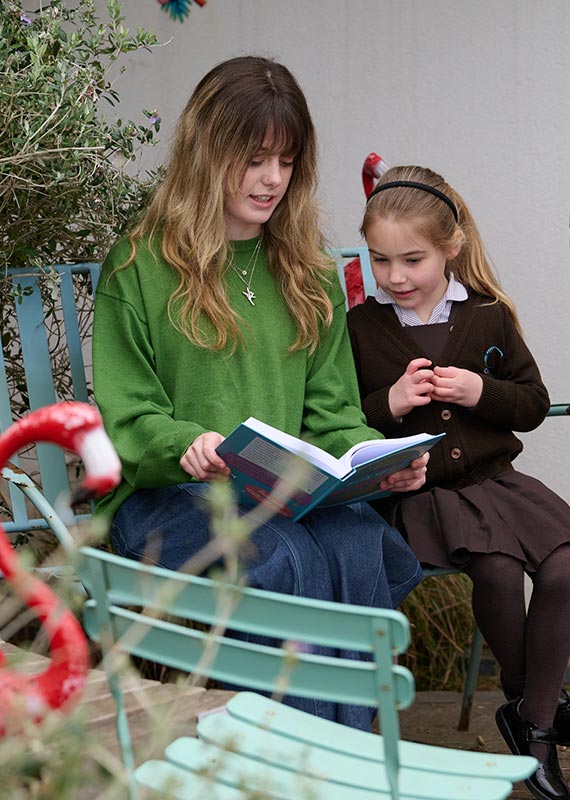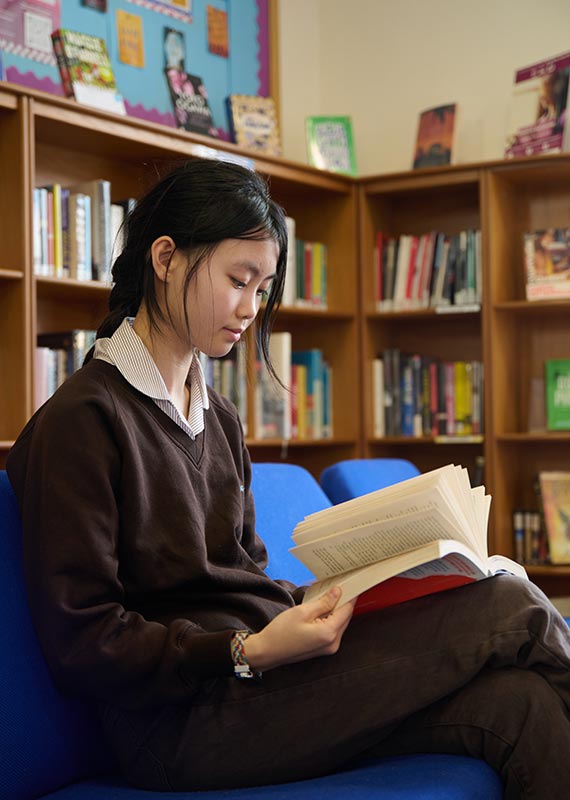 Lindsey Hughes, Headmistress, Channing School
Lindsey Hughes, Headmistress, Channing School Sponsored Post
Our role as a school is to open minds to more than just subjects; we’re here to educate our students in the widest possible sense. To that end we have prioritised reading for pleasure. I was really struck by a quote I read recently, from James Baldwin, that demonstrates the power of reading. He said: “You think your pain and your heartbreak are unprecedented in the history of the world, but then you read. It was books that taught me that the things that tormented me most were the very things that connected me with all the people who were alive, who had ever been alive.”
Reading does many things: it gives us access to the store of human knowledge; it connects us to people and experiences across the world and across the ages; and because of this, reading shapes who we are and moulds us into people who are capable of thinking critically, deeply and sensitively about the world.

As you would expect, there is a positive correlation between reading for pleasure and literacy skills but what is perhaps more surprising is the research that shows a connection between reading for enjoyment and an enhanced ability to learn across the curriculum. Sullivan and Brown, for example, found that there is a ‘substantial link’ between reading for pleasure and ‘progress in mathematics’. Alex Quigley, in his book Closing The Reading Gap, describes reading as “the master skill of school” because it unlocks the academic curriculum for students.
We know that even for our intelligent girls in this academically selective school, the lack of wider reading, beyond those books required for schoolwork, has an impact on their academic progress. It hampers their ability to decode exam questions and the clarity of their written expression, as well as limiting their vocabulary and their ability to analyse in depth. Perhaps most worrying is the echo chamber they create for themselves by not being exposed to a range of ideas, perspectives and experiences beyond those pushed to them by the algorithm of their social media feeds.

The biggest barrier to reading for pleasure that students have reported to us is time: either that they think reading is a waste of time when they should be revising for an upcoming test or catching up with homework, or they are distracted by their phones. We need students to understand that reading time is time well spent. We also know that time away from screens in the immediate period before lights out enhances the quality of sleep, which is an added incentive for reading before bed.
We really want to motivate reading by pointing out that we are all readers too. We’ll be having more conversations with students about our reading, and theirs, so that they begin to view reading as something that enhances and enriches social interaction rather than something that diminishes it. Asking for, and sharing, recommendations is a really simple start. What are you reading at the moment?

